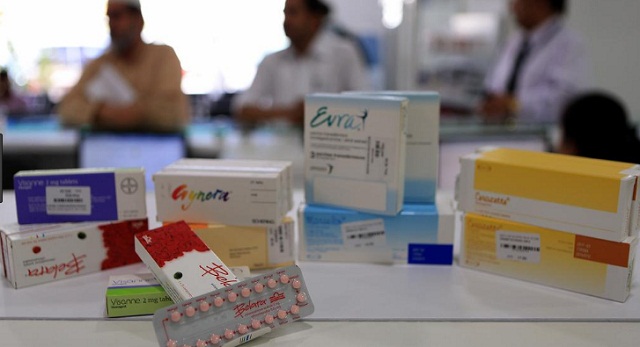
Kampala, Uganda | THE INDEPENDENT | There is a stock out of contraceptives in health centres across the country. The contraceptives are Sayana press, implants and Intrauterine Device-IUD.
Women who have been visiting Kawempe General Referral hospital seeking Sayana and Depo Provera injectable contraceptives have for the past one week been turned away.
Several facilities in Mubende, Masaka and Luweero have reported shortages too.
Dr Placid Mihayo the Assistant Commissioner Sexual Reproductive Health at the Ministry of Health confirmed a national stock out. He, however, adds that a consignment is expected to arrive soon. He, however, declined to answer further questions on the matter.
According to minutes of a stakeholders meeting held at Ministry of Health on Friday, new stocks are expected from Global Fund in August and September. At this meeting, it was revealed that though the commodities are running out of stock at health facilities, some stocks are stuck at the National Medical Stores and can’t be transported to facilities.
In an earlier meeting, Mihayo had said that they were facing challenges regarding distribution of family planning commodities. He urged donors to provide the country with more money to cater for handling fees.
Commenting on a new strategy that the Ministry of Health had embarked on of financing alternative distribution to increase access, he said they were still paying arrears for Uganda Health Marketing Group (UHMG) that was distributing some of the products to private health facilities on their behalf before changing to Joint Medical Stores.
Denis Kibira, the Director of a local NGO HEPs Uganda, says that this state of affairs according to observers should worry the country as it means Uganda cannot meet its set targets, for instance, the target of reducing unmet need for family planning to 10% and increase the modern contraceptive prevalence rate among all women to 50% by 2020 that the country had committed to in 2012.
He says that 80% of the funding comes from donors as that monitors contraceptive use explains.
Uganda had together with more than 20 other governments committed at a summit held in London to address all barriers including financial, policy, delivery and cultural that were impending women from accessing contraceptive information, services and supplies.
During that meeting, Uganda agreed that to be able to meet the target, they would among others commit 10% of the annual health budget to provide reproductive health services and commodities and 10% of that to adolescent sexual reproductive health as this cohort was identified as one with the most unmet need.
But, Kibira says that currently only 35% of the women are estimated to use the commodities and 16 billion shillings was allocated to reproductive health this financial year out of the 2.5 trillion shillings health sector budget.
*****
URN
 The Independent Uganda: You get the Truth we Pay the Price
The Independent Uganda: You get the Truth we Pay the Price



